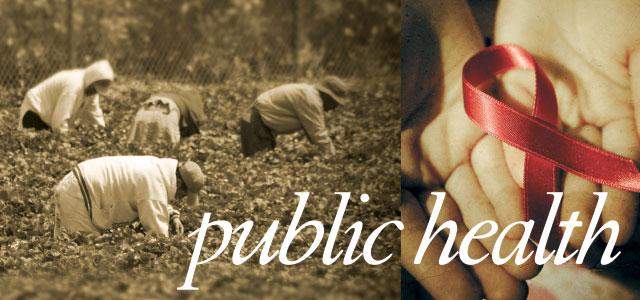
Health Care Community Mourns Two of Nursing’s Most Influential Leaders
This spring, the health care community lost two nurse leaders whose public health work was instrumental in getting essential care to some of the most vulnerable of California’s populations.
 Sarah Gomez Erlach Sarah Gomez Erlach (BS ’49) began her nursing career in the military during World War II and eventually became the first Hispanic student to attend the UC Berkeley School of Nursing (now the UC San Francisco School of Nursing), completing a double major in education and public health. While continuing to serve in the US Army and Army Reserve, she forged a parallel career dedicated to improving health care for the rural poor, and was instrumental in developing public health services in 75 clinics serving California’s migrant farm workers. Her advocacy led to the creation of what became the Primary, Rural, and Indian Health Division of the California Department of Health Care Services, which aims to make primary and other health care services more accessible to the state’s underserved populations.
Sarah Gomez Erlach Sarah Gomez Erlach (BS ’49) began her nursing career in the military during World War II and eventually became the first Hispanic student to attend the UC Berkeley School of Nursing (now the UC San Francisco School of Nursing), completing a double major in education and public health. While continuing to serve in the US Army and Army Reserve, she forged a parallel career dedicated to improving health care for the rural poor, and was instrumental in developing public health services in 75 clinics serving California’s migrant farm workers. Her advocacy led to the creation of what became the Primary, Rural, and Indian Health Division of the California Department of Health Care Services, which aims to make primary and other health care services more accessible to the state’s underserved populations.
Erlach was also passionate about improving diversity within the nursing profession, working with the National Association of Hispanic Nurses to establish policies and develop local chapters to help improve educational, professional and economic opportunities for Hispanic nurses.
In 1995, Erlach was awarded the UCSF Medal, the school’s most prestigious award, given to those who have made outstanding contributions in health care education, service, research or community service.
 Helen Miramontes Clinical Professor Emerita Helen Miramontes (BS ’84, MS ’85) was a beloved teacher and mentor who dedicated her career to improving care of people with HIV/AIDS. As a clinical care nurse, she began caring for patients in the earliest years of the HIV/AIDS epidemic and became a tireless activist and educator for patients and clinicians grappling with the new and frightening disease. She organized a national task force on HIV/AIDS for the American Nurses Association and served as the regional nurse coordinator for the Pacific AIDS Education and Training Center, which provided health care professionals with the knowledge and skills to care for HIV-infected patients in underserved and vulnerable populations.
Helen Miramontes Clinical Professor Emerita Helen Miramontes (BS ’84, MS ’85) was a beloved teacher and mentor who dedicated her career to improving care of people with HIV/AIDS. As a clinical care nurse, she began caring for patients in the earliest years of the HIV/AIDS epidemic and became a tireless activist and educator for patients and clinicians grappling with the new and frightening disease. She organized a national task force on HIV/AIDS for the American Nurses Association and served as the regional nurse coordinator for the Pacific AIDS Education and Training Center, which provided health care professionals with the knowledge and skills to care for HIV-infected patients in underserved and vulnerable populations.
Miramontes led efforts to build HIV/AIDS workforce and to carve out an important role for nurses in combating the epidemic. At UCSF, she became deputy director of the International Center for HIV/AIDS Research and Clinical Training in Nursing, and mentored a new generation of nurse leaders and researchers working in HIV/AIDS.
In 1995, Miramontes was appointed to the Presidential Advisory Council on HIV/AIDS, Research Subcommittee and Executive Subcommittee on International Issues, advancing political and advocacy efforts to develop a vaccine for the disease. In 1992, she received the Pearl McIver Public Health Nurse Award from the American Nurses Association, and the UCSF Chancellor’s Award for Public Service in 1998.



